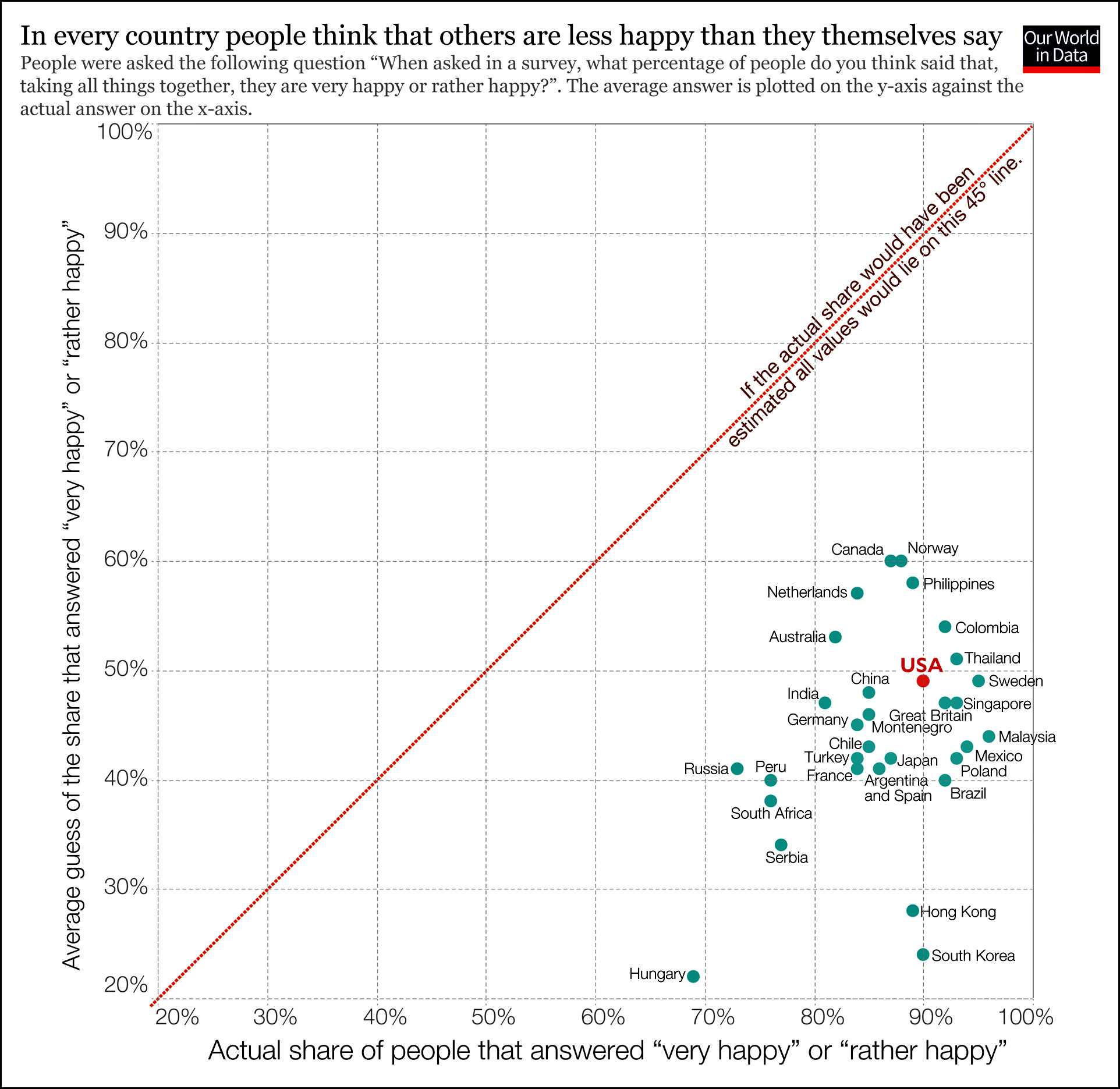I was diddling around with some stuff after reading that New Zealand will henceforth be prioritizing happiness—“well-being and life satisfaction”—over economic growth, and came across this scatterplot about perceived happiness vs. actual happiness:

In every single country, the average estimate of happiness is far lower than actual reported happiness. Every single country! In the US, 90% of people say they’re happy, but the average guess is that only 50 percent of people say they’re happy. Is this because:
- We are really lousy at estimating the happiness of others?
- We implicitly assume that poor people must be unhappy, and there are a lot of poor people?
or
- People lie a lot (or delude themselves) about how happy they are when pollsters ask?
My guess is that it’s a lot of (a) and a little bit of (c).

















